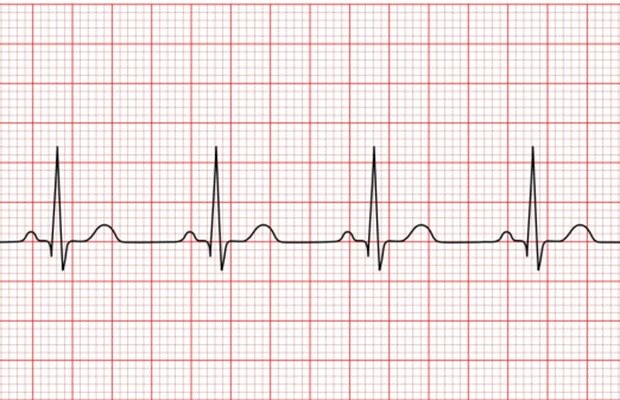E.C.G

E.C.G
An electrocardiogram (ECG) is a test that records the electrical activity of the heart.
How the Test is Performed
You will be asked to lie down. The health care provider will clean several areas on your arms, legs, and chest, and then attach small patches called electrodes to the areas.
You usually need to remain still, and you may be asked to hold your breath for short periods during the procedure. It is important to be relaxed and relatively warm during ECG recording. Any movement, including muscle tremors such as shivering, can alter the results.
The electrodes are connected by wires to a machine that converts the electrical signals from the heart into wavy lines, which are printed on paper and reviewed by the doctor.
Sometimes this test is done while you are exercising or under minimal stress to monitor changes in the heart. This type of ECG is often called a stress test.
How the Test Will Feel
An ECG is painless. No electricity is sent through the body. The electrodes may feel cold when first applied. In rare cases, some people may develop a rash or irritation where the patches were placed.
Why the Test is Performed
- Any damage to the heart
- How fast your heart is beating and whether it is beating normally
- The effects of drugs or devices used to control the heart (such as a pacemaker)
- The size and position of your heart chambers
An ECG is a very useful tool for determining whether a person has heart disease. Your doctor may order this test if you have chest pain or palpitations.
An ECG may be included as part of a routine examination in patients over age 40.
Normal Results
- Heart rate: 50 to 100 beats per minute
- Heart rhythm: consistent and even
Risks
There are no risks. No electricity is sent through the body, so there is no risk of shock.
Considerations
The accuracy of the ECG depends on the condition being tested. Some heart conditions are not detectable all the time, and others may never produce any specific ECG changes.
A person who has had a heart attack or who may have heart disease may need more than one ECG.
Alternative Names
ECG, EKG
Contact Us to get more Information About Our Laboratory
Frequently Asked Questions
An ECG (Electrocardiogram) is a non-invasive test that records the electrical activity of your heart. It provides valuable information about your heart's rhythm and can detect various heart conditions.
Your doctor may recommend an ECG to check for heart problems, assess chest pain, monitor the effectiveness of certain medications, or as part of a routine health check-up, especially if you have risk factors for heart disease.
During the test, small electrode patches will be placed on your chest, arms, and legs. These electrodes are connected to an ECG machine that records your heart's electrical activity. The procedure is painless and typically takes about 5-10 minutes.
Generally, no special preparation is needed. However, it's advisable to wear easily removable clothing as you may need to undress from the waist up. Avoid applying lotions or oils to your skin before the test, as these can interfere with the electrode's connection.
Yes, an ECG is completely safe. It's a non-invasive test that doesn't send any electricity into your body; it only records the electrical activity your heart naturally produces.
We strive to provide quick results. In most cases, you can expect to receive your ECG results within 24 hours. For urgent cases, we can provide results even faster.
Yes, you can eat and drink as normal before an ECG test. However, avoid consuming caffeine or alcohol for a few hours before the test, as these can affect your heart rate.
E.C.G Categories
| Resting Electrocardiogram (ECG) |
| Stress Test (Exercise ECG) |
| Holter Monitor |
| Event Recorder |
| Ambulatory ECG Monitoring |
| 24-Hour ECG Monitoring |
| 48-Hour ECG Monitoring |
| 72-Hour ECG Monitoring |
| Cardiac Stress Testing |
| Signal Averaged ECG |
| Echocardiogram |
| Tilt Table Test |
| Telemetry Monitoring |
| Pacemaker Monitoring |
| Defibrillator Monitoring |
| Electrocardiographic Mapping |
| Electrophysiology Study (EPS) |
| Heart Rate Variability Testing |
| Arrhythmia Detection |
